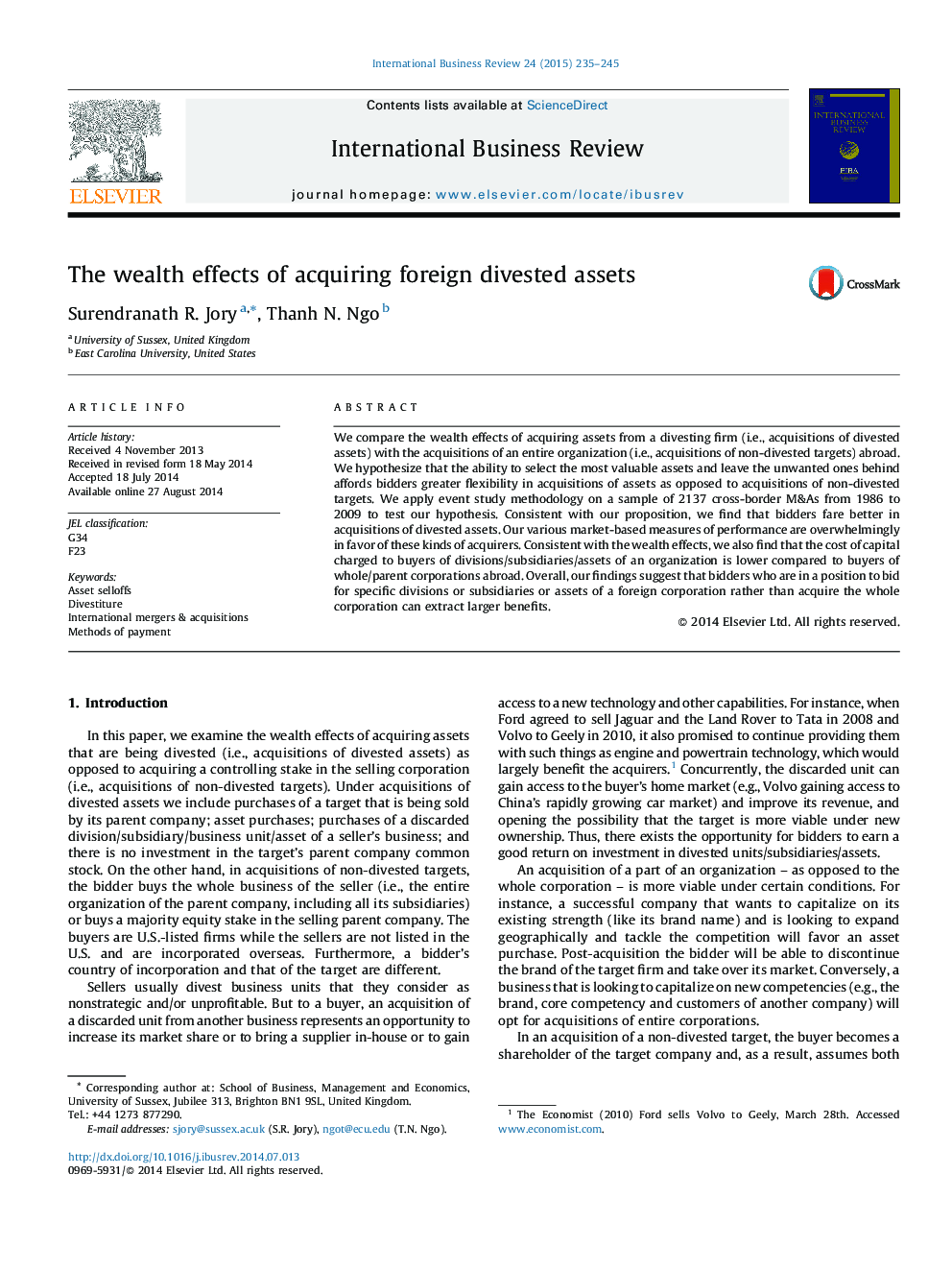| Article ID | Journal | Published Year | Pages | File Type |
|---|---|---|---|---|
| 1001515 | International Business Review | 2015 | 11 Pages |
•We examine cross-border acquisitions of divested assets and find their wealth effects to be positive.•Investors perceive acquisitions of divested assets more favorably than other forms of acquisitions.•The stock price performance of bidders of divested assets exceeds that of buyers of non-divested targets both in the short and long runs.•Consistent with the stock price performance, the cost of equity of buyers of divested assets is lower.•We study the factors that lead buyers to select among different forms of deal in international M&As.
We compare the wealth effects of acquiring assets from a divesting firm (i.e., acquisitions of divested assets) with the acquisitions of an entire organization (i.e., acquisitions of non-divested targets) abroad. We hypothesize that the ability to select the most valuable assets and leave the unwanted ones behind affords bidders greater flexibility in acquisitions of assets as opposed to acquisitions of non-divested targets. We apply event study methodology on a sample of 2137 cross-border M&As from 1986 to 2009 to test our hypothesis. Consistent with our proposition, we find that bidders fare better in acquisitions of divested assets. Our various market-based measures of performance are overwhelmingly in favor of these kinds of acquirers. Consistent with the wealth effects, we also find that the cost of capital charged to buyers of divisions/subsidiaries/assets of an organization is lower compared to buyers of whole/parent corporations abroad. Overall, our findings suggest that bidders who are in a position to bid for specific divisions or subsidiaries or assets of a foreign corporation rather than acquire the whole corporation can extract larger benefits.
